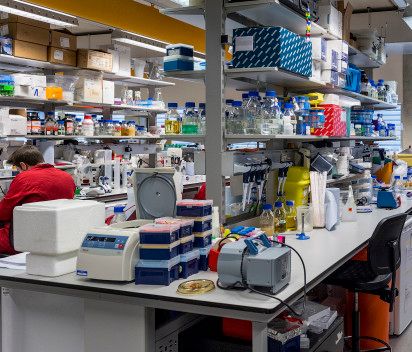BibTex format
@article{Larrouy-Maumus:2022:10.1016/j.jbc.2022.102151,
author = {Larrouy-Maumus, G and Thomson, M and Nunta, K and Liu, Y and Fernandes, N and Williams, R and garza-garcia, A},
doi = {10.1016/j.jbc.2022.102151},
journal = {Journal of Biological Chemistry},
title = {Expression of a novel mycobacterial phosphodiesterase successfully lowers cAMP levels resulting in reduced tolerance to cell wall-targeting antimicrobials},
url = {http://dx.doi.org/10.1016/j.jbc.2022.102151},
volume = {298},
year = {2022}
}
